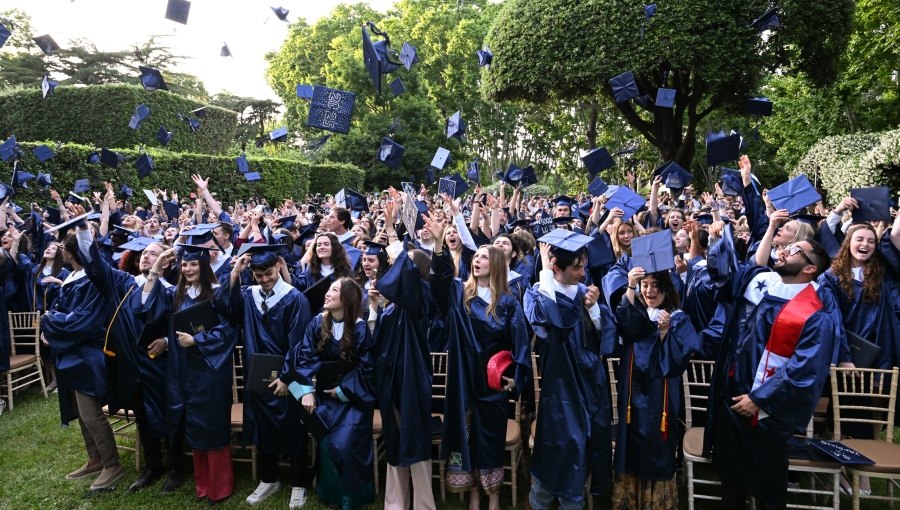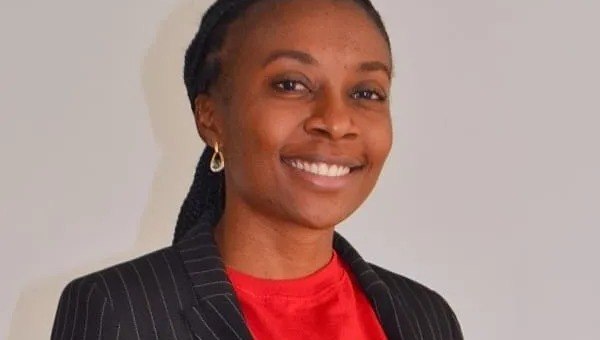English Major Marialaura Grandolfo Accepted to University of Oxford
Marialaura Grandolfo comes from Modugno, a town near Bari (Puglia, Italy). She is an English Literature major with a minor in Communications (Class of 2017). She has worked as a Writing Center tutor and as an assistant to Prof. Carlos Dews, managing the public relations of the Institute for Creative Writing, and co-organizing the upcoming conference “Carson McCullers in the World.” Marialaura is also co-founder and board member of JCU’s Literature Club, and has been a board member of JCU’s Queer Alliance. Marialaura has been accepted to the University of Oxford for an M.St. in English (1900-present).
Congratulations on your acceptance to Oxford! What attracted you to this specific program?
Thank you! I have always been passionate about Modernist and Postmodernist Anglo-American literature and I seconded this inclination during my time at JCU. Modernist literature has its origins in the late 19th and early 20th centuries, while Postmodernist emerged in the post–World War II era. I was looking for a graduate program that would cover this specific literary period, preferably in England. I have always wanted to live in England for a while, to work or study. Oxford was the dream – its faculty and facilities are unparalleled. Their program is very compelling, and I was immediately drawn to the interdisciplinary courses they offer.
What did the application process entail?
The application must include a statement of purpose, a writing sample, your CV, official transcripts and three reference letters, preferably from professors. The writing sample can consist of either two 2000-word pieces or one 4000-word piece. I immediately thought of an honors paper I had written that was approximately 3400 words and that was relevant to the program to which I was applying. I analyzed the endings of four examples of bildungsroman, (a type of novel that focuses on the moral and psychological growth of the protagonist), from Huckleberry Finn by M. Twain to Never Let Me Go by K. Ishiguro. I must say the application process was draining: I spent a good part of my Winter break preparing all the documents. Also, I hate writing about myself, so the statement of purpose was a source of dread. It was definitely worth it though!
What are your expectations of Oxford?
I feel that I have been granted a life-changing opportunity. I expect to be entering a vibrant scholarly conversation, and look forward to enjoying the libraries and facilities. I am also a little intimidated!
What’s the point of still studying English Literature in 2017?
I often get asked this question, and I’m not surprised. Today, we commercialize everything: knowledge, skills, talent. We think about people and things in terms of economic value and “usefulness,” and if we cannot profit from them in the short term, we disregard them. While I agree that studying English Literature – or the humanities in general – in this particular historical period may not be the most lucrative choice, I think literature is the key to understanding the world we live in and becoming complete human beings. Literature does not exist in a vacuum; it is always the expression of collectives and individuals, often experiencing a reality very distant from our own. Reading and understanding literature allows us to “exercise” our empathy and tolerance, as well as to become more critical.
Why did you choose to study English literature specifically? Why not Italian, for instance?
I was lucky enough to have great English instructors during high school. English was the one subject that I never got tired of studying – I loved everything about it, even the grammar! But English was also relevant to my personal interests: before and during high school, I was an avid reader of English literature in translation, and a fan of several British and American TV shows. At some point, I decided I just had to read and watch my favorite works in their original language. So, for me, English has never been just about exercises and irregular verbs – it was always alive, always useful. I still deeply love Italian literature, however, and I’m certainly not averse to French or Russian literature – I suppose I would just define my love for English Literature a “calling.”
What is it about Modernism and Postmodernism that you enjoy so much?
I love Modernism and Postmodernism, perhaps because I perceive them as closer to the reality I experience. I am particularly interested in the fragmentation of the self that we find in Modernist literature, and I think we should look out for what happens to the notion of self in the next few decades. Literature, as language, is constantly evolving, and it is fascinating to see how we perceive ourselves, what certainties we keep and what beliefs we abandon.
Name one work of literature that everyone should read and why.
I cannot but say Mrs. Dalloway by Virginia Woolf, which has been my favorite novel for years now. Some may not agree, but I think it has everything one may possibly want from a novel. An ordinary human being presented in all her extraordinary potential as well as her limits, love and happiness – what they are, and if they exist at all, striking social criticism and yet a fundamental faith in humanity. I could go on and on about Woolf – she is my literary soulmate.
What is your career goal?
Being a tutor and an instructor has taught me that helping others express their potential gives me a great sense of fulfillment, so I would welcome the opportunity to teach. I think I would love teaching in high school, to be honest. Having a passionate teacher in that period of a student’s life can really make a difference, and I speak from experience. Otherwise, I would like to work in the cultural sector.
Why did you decide to apply to John Cabot?
It was the perfect compromise between my humanistic high school education and the in-depth study of English that I was looking for. Truth is, however, that I found out about the university thanks to a fortunate series of coincidences. I participated in an orientation week in Rome organized by the Scuola Normale Superiore (Pisa) during the summer of my fourth year of high school, and I passed by John Cabot every morning. I kept wondering what it was – then I went home, and saw that a friend of mine had liked a post on JCU’s Facebook page. I got curious and looked at the website, and when I found out I could study English Literature in Italy, I thought “this is it!”
Any advice for a new student starting out at JCU?
Honestly, you couldn’t have made a better choice. You will meet people you would have never expected to meet, and find a dynamic community within your selected major. Also, the classroom size is an amazing benefit – you will be able to form meaningful relationships with your professors, and you have no idea now how enriching it will be in the long term. An obvious pieces of advice: study hard, love what you study, but don’t neglect your personal life and well-being for your studies; find a middle ground! Finally, some advice from a sleep-deprived writing tutor: plan your papers WAY in advance!






